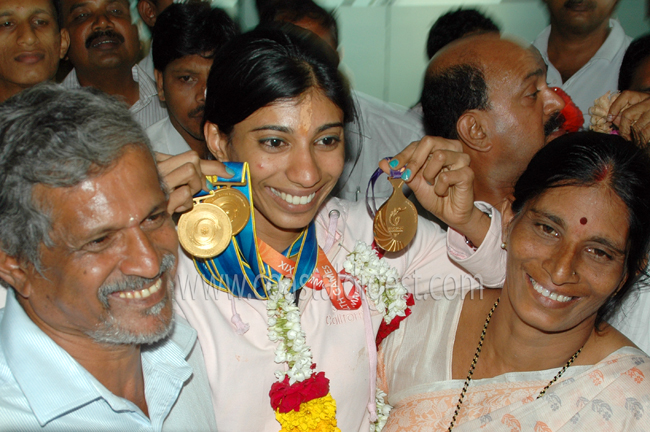Udupi, Jan 17: In a unique philanthropic initiative, two US based NRI children have established the first unit of Keithan & Keisha Skill Development Centre at SVS English Medium School, Katapady in Udupi district.
The centre was inaugurated by Dr. Ranjan B. Kini, Professor of Management - Information Systems of Indiana University Northwest (UCN), USA on Saturday, January 11, 2020.
The centre will provide exposure to rural high school students in technical skills in emerging technological domains, soft skills and life skills through online training and video conferencing during weekend seminars. The centre is established by Keithan and Keisha with the help of their parents. They are the children of Katapady Krishna Mohan Pai, CEO of Invenger Technologies Inc., USA. One 55 inch LCD TV, two computers and one laptop were donated as part of the initiation package.
Dr. Srikanth Prabhu, Associate Professor, Department of Computer Science & Engineering, MIT, Manipal will be anchoring the training sessions which will cover emerging fields like Robotics, its impact and the opportunities in the future. The training will include international online programmes and video conferencing.
“In today’s competitive world, students need technical knowledge to keep pace with the changing scenarios. Along with technical exposure, they should also be equipped with soft skills, communication skills and organizing abilities,” said Dr. Ranjan B. Kini after inaugurating the first unit at SVS English Medium School, Katapady.
Dr. Srikanth Prabhu informed the gathering about the idea behind the project, explained its features and programmes. “If good awareness is given to students at a young age regarding latest developments in technical fields and if they are trained in soft skills and other complementary skills, they will be able to face the future with confidence and attain the heights of success even if beginning from zero,” he said.
Presiding over the function K. Sathyendra Pai, Director of Invenger Technologies said, “This is the first centre to be set up under our initiative to train rural children in add-on skills and help them to gain parity with better educated students.” More such centres will be set up in other schools soon, he added.
Katapady Krishna Mohan Pai, CEO of Invenger Technologies Inc., Amith Nayak of Archana Developers, Umesh Rao, President of Rotary Club Katapady, Savitha Manjunath, PWD Officer of Udupi, technical experts Nidhi Manjunath and Mitesh Singh were the guests of honour. Directors of the company B. C. Pai, Srinivas Vasudev Kini and Venkatramana Bhat were present.
School Headmaster Devendra Nayak welcomed the gathering. Megha gave a vote of thanks. School teachers Uma and Chaitra along with other teachers coordinated the event. Student leaders Dhanush and Jessel Vinola Quadros compered the programme.






Comments
Add new comment